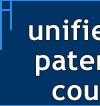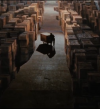CIPPM receives funding to carry out a 3 years collaborative project on orphan works clearance (EnDOW).
The potential for mass digitisation and online publication to enable museums, archives and libraries to share their collections with the public, is huge. However, legal barriers still severely undermine this potential. Recent legislative changes in the UK and across the European Union – while designed to make sharing content easier – have inadvertently created a costly and time consuming process.
CIPPM Director Maurizio Borghi explained, “Orphan works, where the copyright owner is not known or untraceable, make up a substantial proportion of collections in museums, archives and libraries. Previous research has suggested that 90% of photos in UK archives and 95% of all British newspaper articles written before 1912 are ‘orphan’. This represents a huge proportion of our recent cultural heritage.
Under new legislation introduced in the UK and across the European Union, cultural institutions are able to digitise and share this orphan content, but only if they can prove that the copyright owner has not been identified after carrying out a ‘diligent search’.”
While intended to make it easier for museums, archives and libraries to share their collections more widely, in practice, it has created a new barrier to publishing photos, films, newspapers and other copyright-protected content held in cultural institutions.
Professor Borghi went on to explain, “At present, the cost of a diligent search is too high for many museums, libraries and archives across Europe. This means that many are missing out on being able to digitise information, because they can’t prove they have tried to determine the copyright status of works in their collection.”
Thanks to a grant from Heritage Plus Joint Call, an international team of researchers from the UK, the Netherlands and Italy, led by CIPPM, will be carrying out research to create a new online resource which will make searching for copyright owners much easier and cheaper.
Professor Borghi said, “By designing and implementing an online, crowd-sourced platform, we hope to get citizens involved in carrying out diligent searches on behalf of cultural institutions. This will make it much less expensive for our museums, archives and libraries to find out the legal status of images, films and other content.
Across Europe, we have access to a rich heritage of recent cultural images, films, sounds and texts, and by helping to enable more cultural institutions to digitise and disseminate their collections, we hope to see more people enjoying and sharing our history.”





